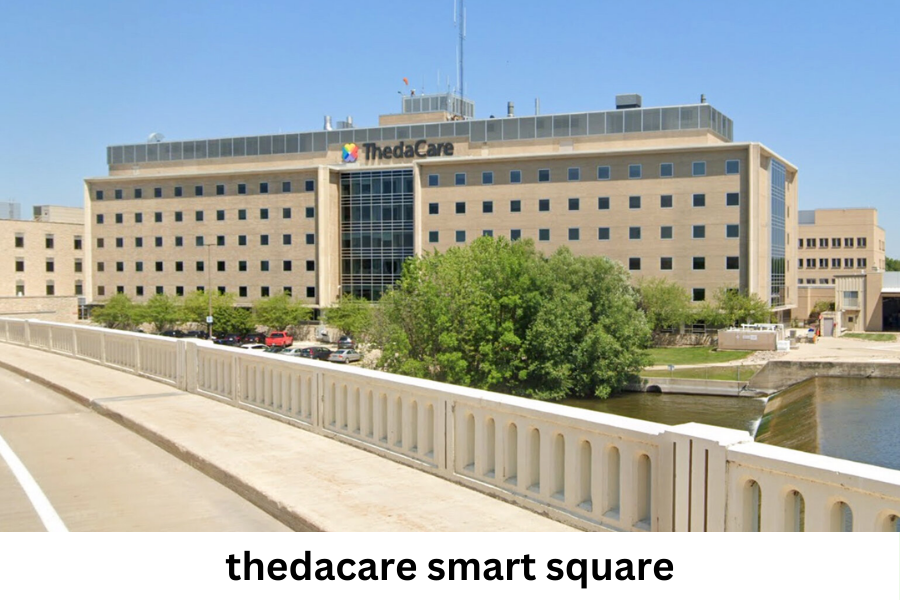In the rapidly evolving healthcare landscape, one of the biggest challenges healthcare systems face is managing their workforce efficiently. This is particularly crucial in ensuring that patients receive timely and effective care while keeping operational costs in check. To address this challenge, ThedaCare, a healthcare provider in Northeast Wisconsin, has implemented a groundbreaking tool—ThedaCare Smart Square.
What is ThedaCare Smart Square?
ThedaCare Smart Square is a comprehensive staff scheduling and workforce management software solution designed to optimize staffing, improve operational efficiency, and enhance the patient care experience. It integrates advanced technologies such as predictive analytics, real-time scheduling, and business intelligence features into a single platform, providing healthcare administrators with a powerful tool to manage their workforce.
The software was designed with the unique needs of the healthcare industry in mind, where every shift matters and staffing shortages or surpluses can directly impact the quality of care delivered. With Smart Square, ThedaCare aims to ensure that each department is properly staffed while also providing a flexible scheduling environment for its employees.
Wiki
| Feature | Description |
| What is it? | A workforce management and scheduling tool designed to optimize staffing, improve operational efficiency, and enhance patient care in healthcare organizations. |
| Key Technology | Predictive analytics, real-time scheduling, business intelligence, and workforce management. |
| Primary Function | Forecasts staffing needs, creates optimized schedules, reduces costs, and improves employee satisfaction and patient care. |
| Staffing Forecasting | Uses historical data and predictive analytics to forecast staffing requirements based on patient volume and other factors. |
| Real-Time Scheduling | Allows employees to view and manage schedules, request time off, and swap shifts with colleagues in real-time. |
| Employee Satisfaction | Provides flexible scheduling options to improve work-life balance and reduce burnout among healthcare workers. |
| Cost Optimization | Reduces reliance on overtime and temporary staffing, helps manage labor costs more effectively. |
| Integration | Integrates with other healthcare systems such as HR software, payroll platforms, and electronic health records (EHR). |
| Impact on Patient Care | Ensures proper staffing levels, reduces wait times, and improves overall patient care by having qualified staff available at critical times. |
| Scalability | Suitable for both small clinics and large hospital systems, offering a scalable solution for various healthcare settings. |
| Implementation Example | Successfully implemented at ThedaCare, a healthcare provider in Northeast Wisconsin, to optimize staffing and improve patient and employee outcomes. |
How Smart Square Works
The core of ThedaCare Smart Square lies in its ability to intelligently manage and forecast staffing needs based on a wide range of factors. This can include patient volume, historical data, employee skill sets, shift preferences, and availability. The software uses these inputs to create optimized schedules that ensure the right staff members are on hand at the right time.
Key Features of ThedaCare Smart Square
Predictive Analytics for Accurate Staffing
One of the standout features of ThedaCare Smart Square is its use of predictive analytics to forecast staffing needs. By analyzing historical data and recognizing patterns in patient admissions, discharge rates, and staffing trends, the software can predict when more staff will be needed.
For example, if a hospital historically experiences a high volume of patient admissions during certain times of the year, Smart Square can alert administrators to prepare for these fluctuations in advance. This not only helps to optimize staffing levels but also reduces the risk of understaffing during peak times and overstaffing during slower periods.
Predictive analytics also help in better managing overtime, ensuring that staff don’t exceed their maximum work hours, which can lead to burnout and additional costs.
Real-Time Scheduling for Flexibility
Smart Square offers real-time scheduling capabilities, which is crucial in a dynamic healthcare environment. Employees can view their schedules, request shift changes, and even swap shifts with colleagues in real-time, without the need for manual intervention from management.
This feature not only enhances employee satisfaction by giving staff more control over their schedules but also ensures that shifts are covered without gaps, reducing the risk of errors or inadequate staffing. The real-time scheduling feature also allows healthcare administrators to quickly adapt to sudden changes, such as last-minute call-outs, sick days, or emergencies.
Comprehensive Workforce Management
Smart Square goes beyond just scheduling by offering comprehensive workforce management features. It helps healthcare providers track employee certifications, skill sets, and competencies to ensure that each department is staffed with the right personnel.
For instance, if a specific department requires nurses with expertise in a particular area, Smart Square can filter staff based on their credentials and assign the most qualified individuals. This reduces the risk of errors caused by unqualified personnel and ensures that patients receive the best care possible.
Integration with Other Healthcare Systems
Smart Square is designed to integrate seamlessly with other healthcare systems, including human resources (HR) software, payroll platforms, and electronic health records (EHR). This interoperability eliminates the need for redundant data entry and reduces the chances of errors. It also streamlines the entire workforce management process, saving time and resources.
For example, employee work hours logged in Smart Square can automatically sync with payroll systems, ensuring that employees are paid accurately for the shifts they’ve worked. This integration helps to reduce administrative burdens and ensures that data is consistent across all platforms.
Employee Satisfaction and Work-Life Balance
A key feature of ThedaCare Smart Square is its focus on improving employee satisfaction. The healthcare sector can be a stressful environment, with staff often working long shifts and experiencing burnout. By providing employees with more flexibility in scheduling, Smart Square enables them to align their work hours with personal commitments, improving their work-life balance.
The platform allows employees to request time off, swap shifts, and select preferred working hours based on availability and preferences. As a result, employees feel more in control of their work schedules, which can lead to higher job satisfaction and reduced turnover rates.
Cost Optimization and Financial Management
Managing costs is a constant challenge for healthcare facilities, especially with fluctuating staffing needs. Smart Square helps organizations optimize staffing costs by reducing the reliance on temporary staffing agencies and overtime. By accurately forecasting staffing needs and automating the scheduling process, the software helps prevent overstaffing or understaffing, both of which can have financial consequences.
The software also provides detailed insights into workforce efficiency and labor costs, helping administrators make informed decisions about resource allocation. The transparency of cost-related data empowers healthcare leaders to identify areas where savings can be made without compromising patient care.
The Impact on Patient Care
Effective workforce management directly impacts patient care. By ensuring that the right number of staff is available at the right times, ThedaCare Smart Square helps to ensure that patients receive timely care when they need it most.
Staffing shortages, especially in critical departments like emergency rooms or intensive care units, can lead to longer wait times, decreased patient satisfaction, and even negative health outcomes. By utilizing predictive analytics and real-time scheduling, Smart Square helps minimize these risks and ensures that patients receive the attention they deserve.
Moreover, Smart Square helps prevent staff burnout, which can affect the quality of care. Overworked healthcare workers are more likely to make mistakes or have lower engagement levels. By offering flexibility in scheduling and workload management, Smart Square fosters a healthier, more productive workforce, which ultimately results in better patient outcomes.
Employee and Employer Collaboration
Smart Square’s real-time capabilities foster a collaborative relationship between employees and employers. Employees have more autonomy over their schedules, which improves job satisfaction and reduces stress. Meanwhile, employers can ensure that all shifts are adequately staffed and that the needs of both patients and staff are met.
This collaboration is especially important in healthcare settings, where the nature of the job can often lead to conflicts between staff preferences and patient needs. Smart Square helps bridge this gap by offering both flexibility for employees and efficiency for employers.
ThedaCare’s Smart Square Implementation
ThedaCare’s adoption of Smart Square has been a game-changer for the organization. By integrating this workforce management software, ThedaCare has been able to optimize staffing, reduce operational inefficiencies, and improve both employee and patient satisfaction. The implementation of Smart Square has allowed ThedaCare to adapt to the changing demands of the healthcare industry, ensuring that staff are available when needed most.
For instance, ThedaCare has been able to predict staffing shortages before they occur, reducing the risk of having too few staff members during peak hours. This predictive capability is especially important for handling the unpredictable nature of patient admissions and staffing fluctuations.
Key Takeaways from ThedaCare’s Experience
ThedaCare’s experience with Smart Square highlights the benefits of embracing technology in healthcare workforce management. The use of predictive analytics, real-time scheduling, and integrated workforce management tools has allowed ThedaCare to deliver better patient care, reduce costs, and improve employee satisfaction.
By using Smart Square, ThedaCare has successfully addressed many of the challenges associated with traditional staffing methods, such as scheduling inefficiencies and employee burnout. The platform’s ability to forecast staffing needs and offer flexible scheduling options has proven to be a significant asset in maintaining high standards of care while keeping operational costs under control.
In the future, as more healthcare facilities look to streamline their workforce management, solutions like Smart Square will play a crucial role in ensuring that healthcare systems are both efficient and capable of meeting the growing demands of patients and staff alike.
Conclusion
In today’s healthcare industry, efficient workforce management is essential for delivering quality patient care while optimizing operational costs. ThedaCare Smart Square has proven to be a revolutionary tool in addressing these challenges. By leveraging predictive analytics, real-time scheduling, and integrated workforce management features, Smart Square empowers healthcare administrators to optimize staffing levels, reduce burnout, and improve both patient and employee satisfaction.
As healthcare systems across the world continue to face growing pressures, solutions like ThedaCare Smart Square are critical in transforming how organizations manage their workforce. This advanced system provides healthcare organizations with the tools they need to navigate the complexities of staffing, enhance efficiency, and ultimately improve the patient experience. The successful implementation of Smart Square at ThedaCare is a testament to the value of investing in innovative technology to drive better outcomes for both patients and staff.
Frequently Asked Questions (FAQs)
1. What is ThedaCare Smart Square?
ThedaCare Smart Square is an advanced workforce management and scheduling tool designed specifically for healthcare settings. It helps healthcare organizations efficiently manage their staff by predicting staffing needs, optimizing shift schedules, and improving both employee and patient satisfaction.
2. How does ThedaCare Smart Square help with staffing?
Smart Square uses predictive analytics to forecast staffing needs based on historical data, patient volume, and other relevant factors. It creates optimized schedules that ensure the right staff is available at the right time, reducing the risk of overstaffing or understaffing.
3. Can employees request time off or swap shifts using Smart Square?
Yes, Smart Square offers real-time scheduling features that allow employees to request time off, swap shifts with colleagues, and manage their work hours more flexibly, providing them with greater control over their schedules.
4. How does ThedaCare Smart Square improve employee satisfaction?
Smart Square improves employee satisfaction by offering flexible scheduling options, reducing the strain of overworking, and allowing staff to have more control over their shifts. It fosters a better work-life balance, which is crucial for preventing burnout and improving job satisfaction.
5. Does ThedaCare Smart Square integrate with other healthcare systems?
Yes, Smart Square integrates seamlessly with other systems such as HR software, payroll platforms, and electronic health records (EHR). This integration streamlines data entry, ensures accuracy, and reduces administrative burdens.
6. What impact does Smart Square have on patient care?
By ensuring that the right staff is available at critical times, ThedaCare Smart Square enhances patient care by reducing wait times, improving service efficiency, and ensuring that the healthcare team is appropriately staffed to meet patient needs. It helps prevent staff burnout, which can negatively impact patient outcomes.
7. Is Smart Square only for large healthcare systems like ThedaCare?
While Smart Square is used by ThedaCare, the system can be adapted for healthcare organizations of various sizes, from small clinics to large hospital systems. Its scalable design makes it suitable for a wide range of healthcare environments looking to improve workforce management.
8. How does ThedaCare Smart Square reduce costs?
Smart Square helps reduce costs by accurately predicting staffing needs, minimizing overtime, and reducing the reliance on temporary staffing agencies. By optimizing scheduling and workforce allocation, healthcare organizations can better manage their labor costs while maintaining high-quality care.
Get the latest scoop and updates on playhop



